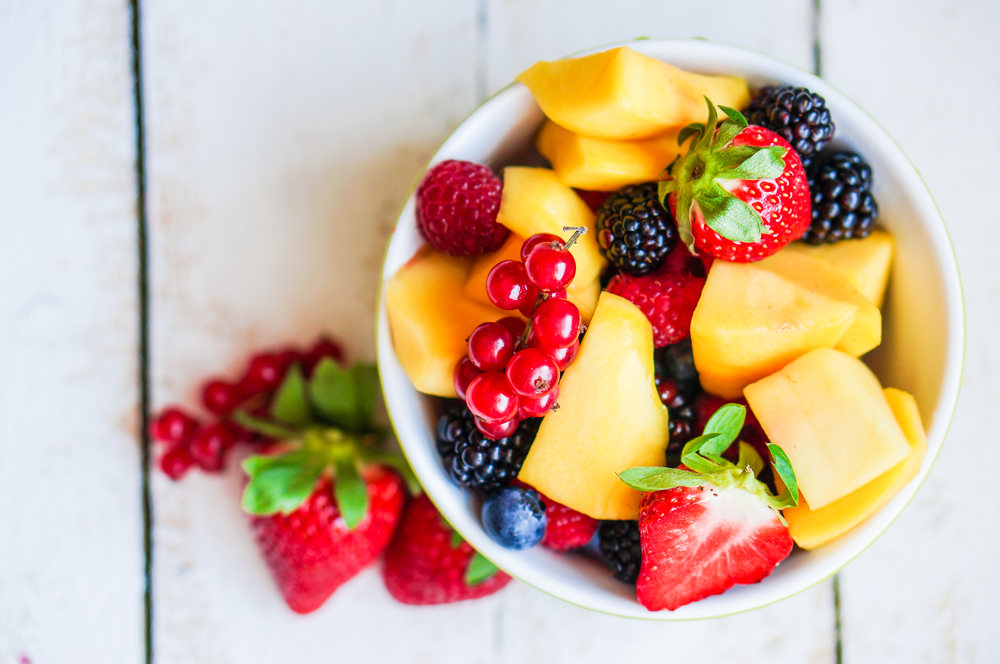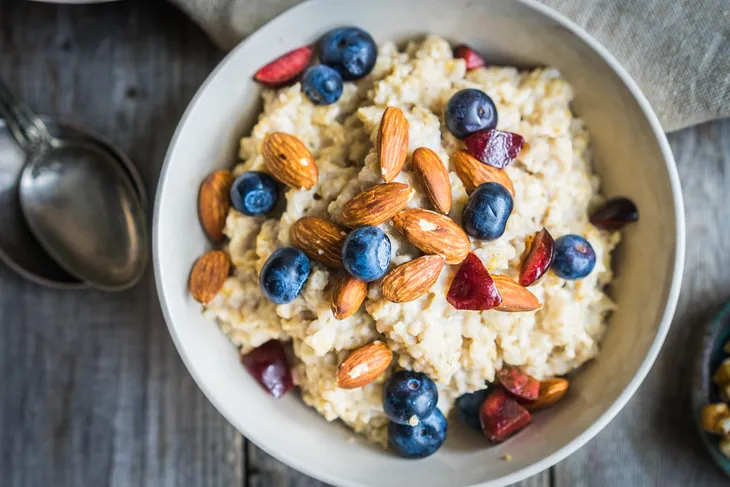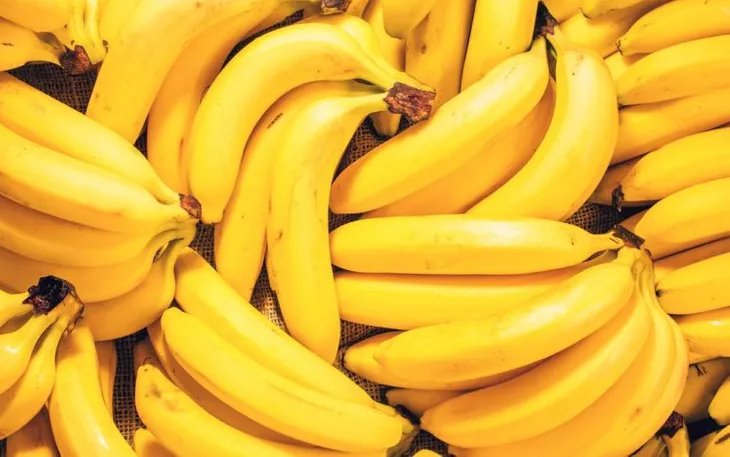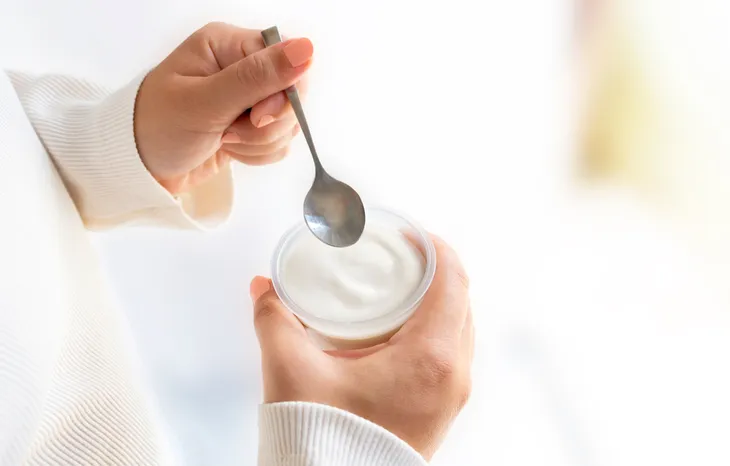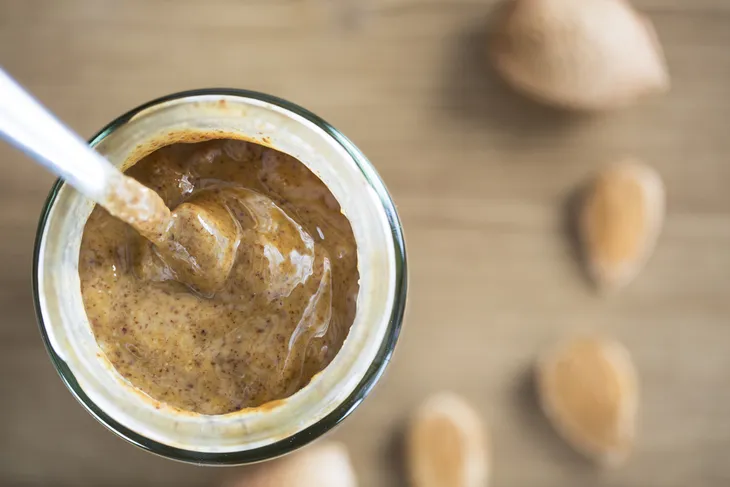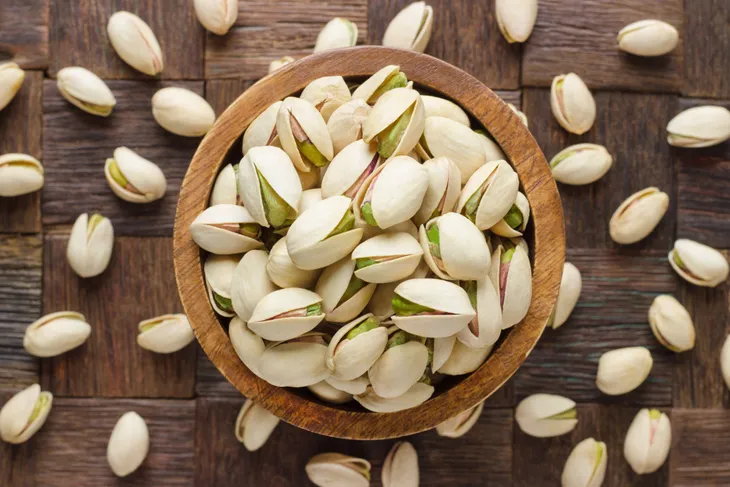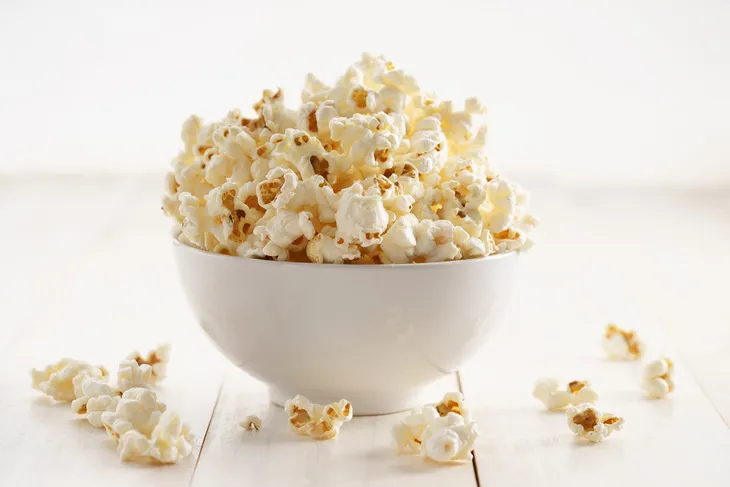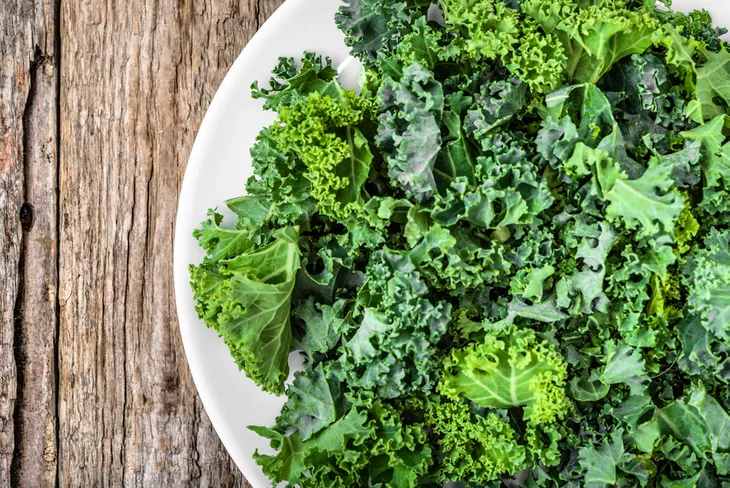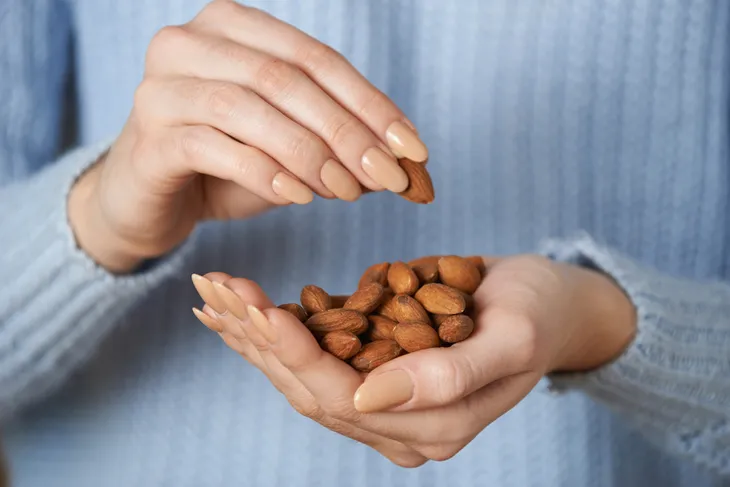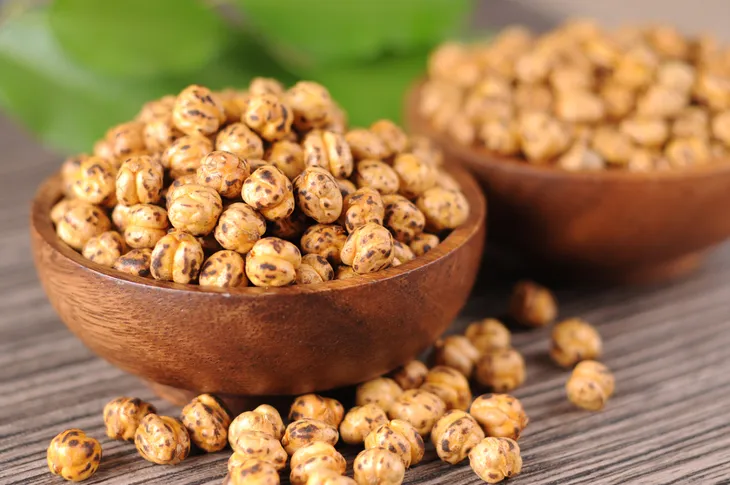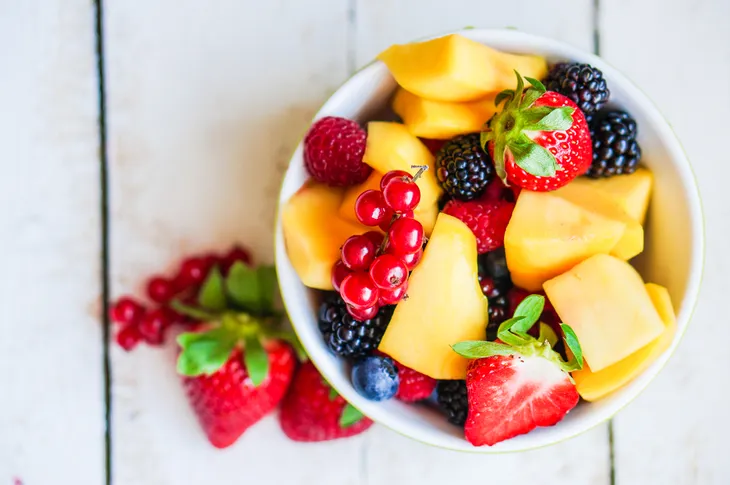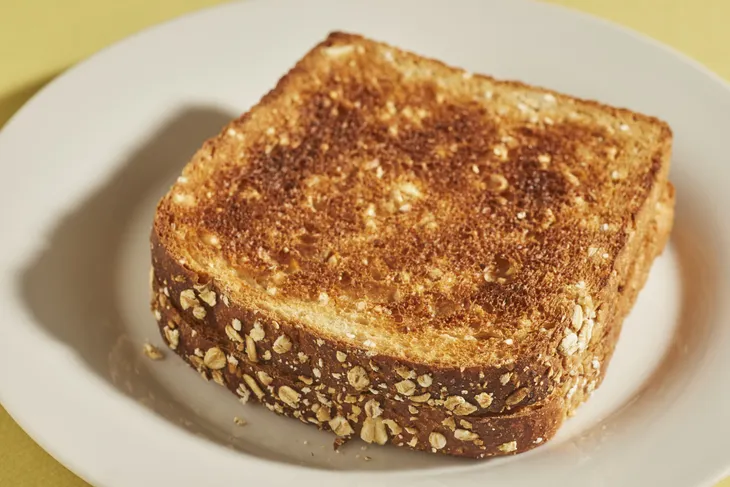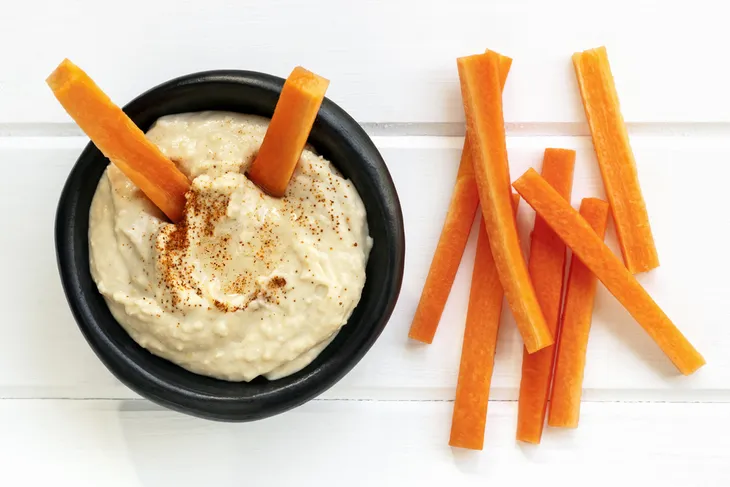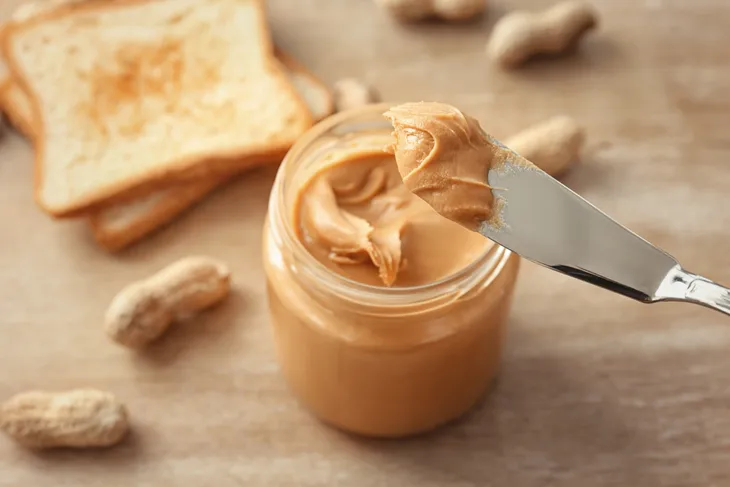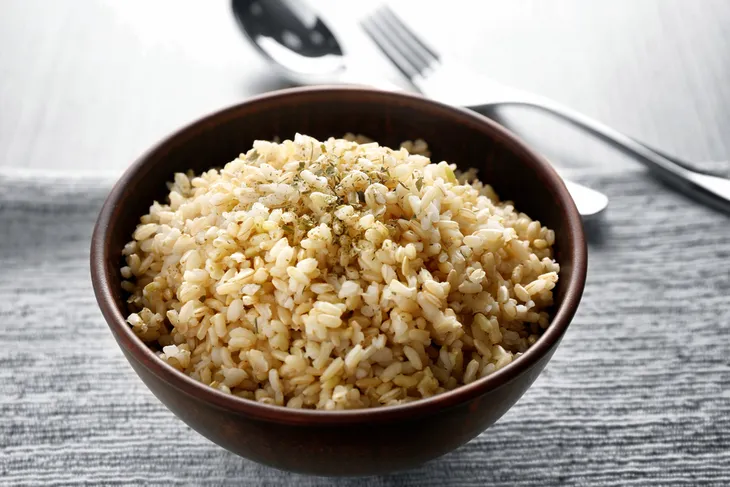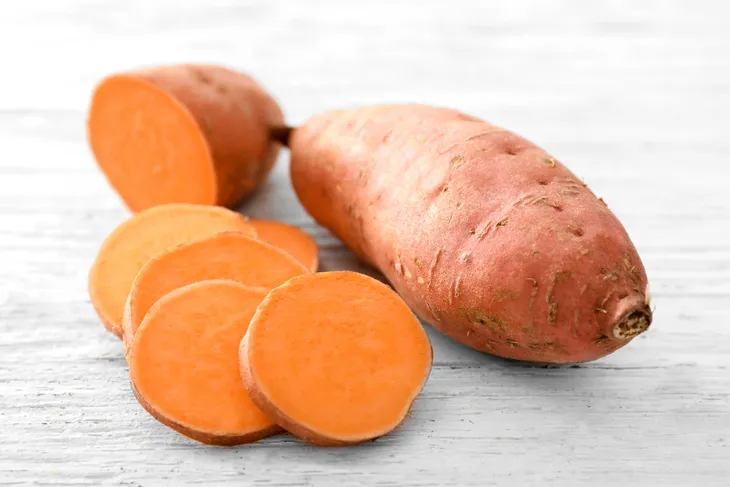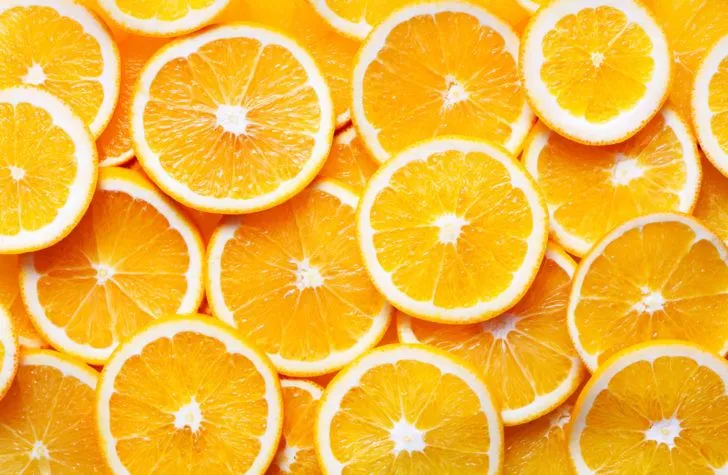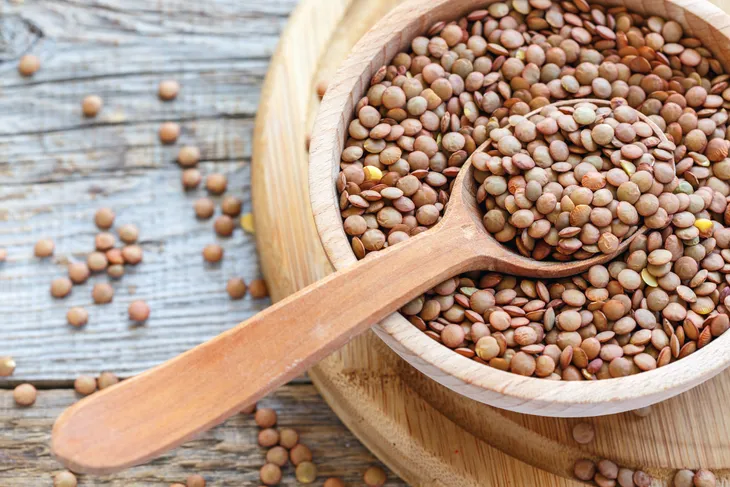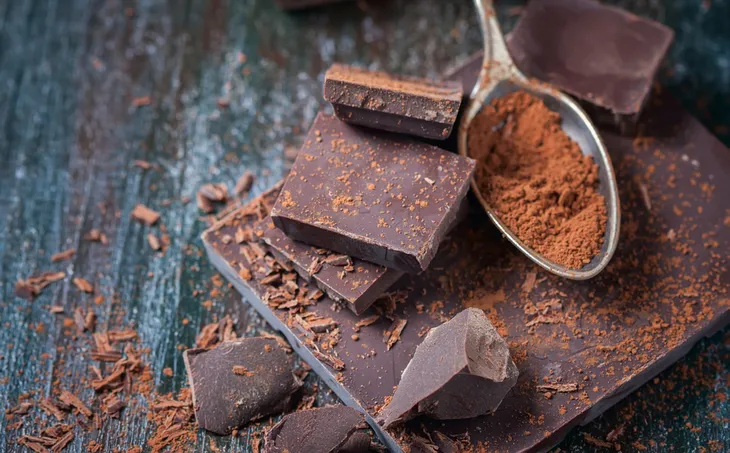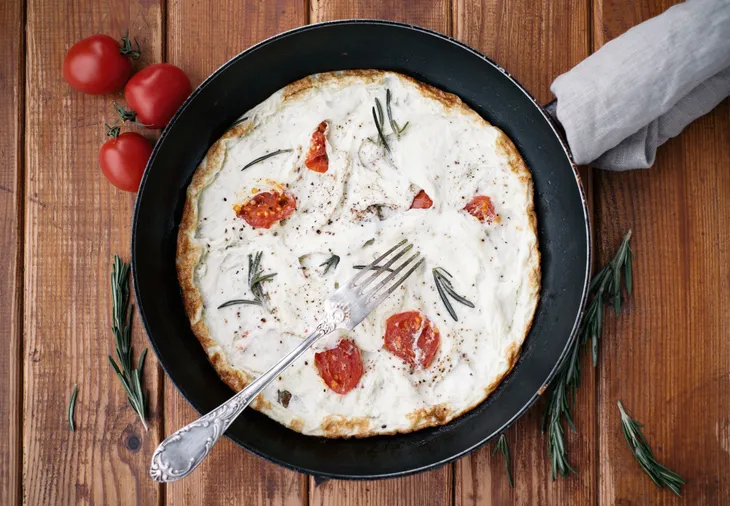Late afternoon is when my energy is usually at an all time low. I used to think that meant a walk to the coffee shop to grab an extra-large cup of caffeine to get me through the remainder of the day. For many, a chocolate bar, bakery treat, or an energy drink might seem like a wise choice.
Sadly, the energy that baked goods, snack foods, and so-called “pick-me-up” beverages provide are short-lived and often followed by a sugar crash that’ll leave you even more exhausted. That’s why choosing healthy, energizing foods—such as lean sources of protein, high fiber, whole grain or complex carbohydrates, and natural sugars are more effective at putting the pep back in your slow step.
Here are 20 foods to turbo-charge your energy…
Want diet & nutrition content delivered straight to your inbox? Sign up for our exclusive diet & nutrition newsletter!
Oats
There’s a reason why oatmeal typically sits at the top of most recommended breakfast lists—it’s the perfect fiber-fuelling food to start your day off energetic and power you through the entire morning without dragging your feet. Foods that are high in healthy fiber digest slowly so you don’t suffer a mid-morning snack craving.
Bananas
Talk about energizing and convenient! Bananas are nature’s perfect snack. They’re high in fiber, B vitamins, and potassium, which energize the muscles and brain. Plus, if you’re not a big breakfast eater, you can chow down on a banana in the car on the way to work or pair it with a cup of Greek yogurt for some well-rounded protein.
Greek Yogurt
A lean, mean source of healthy protein, Greek yogurt provides more than double the protein of regular yogurt, which is why it makes a great breakfast (mix it with homemade granola or oats) or a healthy dip base (blend it with garlic, cucumber, and lemon for Tzatziki).
Nut Butter
Peanuts, almonds, soy nuts, cashews…oh my! Why the delight! Well because natural nut butters provide satiating protein and carbohydrates that will quell your mid-day snack habit and provide an energy boost—without the added sugars and chemical additives of overly processed brands. Try a tablespoon smeared on dark rye toast, whole wheat pita, or a few whole-grain crackers to get you through a long afternoon.
Pistachios
These protein-packed nuts are high in protein, yes, but also in fiber, and heart-healthy fats that will keep your body and brain sharp. Plus, a handful of pistachios (approximately 25) contain a mere 100 calories.
Air-Popped Popcorn
Sure, the butter-slathered bag you get at the movies won’t keep you at your best and brightest, but the whole-grain, air-popped corn you prepare at home certainly will. Look for a brand that contains whole-grain carbohydrates for added fiber. And add a touch of olive oil and dried dill to keep your blood sugar from plummeting mid-afternoon.
Dark Leafy Greens
What’s the base of your salad? If you’re just using regular old iceberg lettuce; you’re missing out on some major energy sources. Instead, try baby spinach or kale. These leafy greens are super high in nutrients, vitamins, fiber, and amino acids that can be also tossed into rice dishes, soups, and sauces for an extra kick.
Salmon
Fish isn’t considered brain food for no reason, and salmon is particularly good at boosting brain activity due to its high and healthy omega-3 fatty acid content. These healthy fats are credited with improving memory, energy, and mood, while reducing feelings of exhaustion and depression.
Almonds
Crunchy, portable, and super high in fiber, magnesium, and vitamin B, almonds are one snack that quickly converts to the energy you so desperately need mid-afternoon. In fact, studies link the energy form almonds to boosting energy for exercise and rising metabolism, which burns calories.
Chickpeas
Beans and legumes, such as chickpeas, contain a perfect combination of fiber and protein that will balance out dropping blood sugar and keep you satiated throughout the afternoon. That’s why a nice hummus dip, a blend of garbanzo beans, olive oil, garlic, and lemon juice is perfect to fill that energy gap. Pair your hummus with raw veggies or whole wheat pita for dipping. For those of you who like a crunchy snack, try roasting some chickpeas in the oven!
Fresh Fruit
Most of the food that comes from the earth is meant to be eaten in its natural state, this is especially true for fresh fruit which is made up of natural sugar that gives us energy. It’s the perfect pick-me up throughout the day and to top it off, it’s loaded with dietary fiber that will work to keep blood sugar levels nice and steady.
Some people find it hard to eat fruit in its natural state, so to help with that, try mixing a fruit smoothie! Smoothies make the perfect on-the-go breakfast. Dump in some blueberries to help with focus, strawberries cause they’re high in vitamin C which works to turn fat into energy, and then some yogurt that’s rich in magnesium, so it regulates the release of energy.
Whole-Grain Toast
We’ve always been taught to steer clear of carbohydrates, but carbs are what give us energy. In fact, according to Reader’s Digest, they provide 60 percent of the energy we need to keep our bodies going! It’s true the best way to lose weight and stay healthy is to steer clear of things like white rice and white bread (and to just generally eat bread in moderation), but whole grains are a great alternative to white bread because they’re packed with vitamins and minerals.
According to a study published in the Journal of Nutrition and Metabolism, whole grains can prevent a surge in blood sugar, especially after indulging in processed snacks and are high in sugar. Reader’s Digest advises starting the day off with an energy boost by eating oatmeal or a high-fiber cereal. If breakfast isn’t your thing, try whole-grain crackers with lunch or a granola bar.
Hummus
Hummus is a great way to jazz up any bland snack like crackers or veggies. This Mediterranean dip is also super easy to make! Everyday Health offers the perfect recipe packed with energy-boosting ingredients; mix together pureed garbanzo beans, sesame-based tahini, olive oil, and a bit of lemon juice. Chickpeas are another great source of complex carbs and fiber that the body can use to improve our energy levels.
“The fiber and protein that the beans provide stabilize blood sugar, take the edge of hunger, and boost energy,” says the source. Spread it on a sandwich as a healthier alternative to mayonnaise, or swap out the ranch dip for a side of hummus when eating carrot sticks.
Peanut Butter
Peanut butter is one of many foods that can be good for us, but only in moderation. It can be easy to get carried away with this delicious spread because it tastes so good, but it’s actually very high in calories. But enough with the negative, let’s get to the good stuff! Peanut butter also contains healthy fats, protein, and fiber which all work to keep hunger at bay and regulate our blood sugar levels.
When purchasing peanut butter in the grocery store, check the label. Go for the brand that is all-natural without any added sugars and stick to a 2-tablespoon serving at a time.
Brown Rice
We’re typically told to steer clear of rice, but brown rice is a great alternative to that starchy, white rice. Not only is it an easy swap for a healthier alternative, but it’ll actually provide some great health benefits. It’s been deemed a high-energy food because it contains “manganese, which helps your body produce energy from proteins and carbs. It will help you feel motivated and full of energy all day,” says Reader’s Digest.
According to Healthline, “one cup of cooked brown rice contains 3.5 grams of fiber and provides about 88% of the RDI for manganese, a mineral that helps your enzymes break down carbohydrates and proteins to generate energy.” The fiber also contributes to regulating blood sugar which keeps your energy levels steady throughout the day.
Sweet Potato
Sweet potatoes are a great alternative to potatoes, especially for those of us who just can’t seem to give up french fries! Usually, we feel guilty about eating potatoes, but sweet potatoes are actually something to feel good about, literally!
Healthline boasts that they’re a good source of energy. In fact, one medium-sized sweet potato could contain up to “23 grams of carbohydrates, 3.8-grams of fiber, 28-percent of the RDI for manganese, and a whopping 438-percent of the RDI for vitamin A.” The fiber and complex carbs are digested slowly which helps to maintain our energy levels.
Oranges
Don’t make the mistake of thinking oranges are only good for a boost in vitamin C. This sweet fruit also contains antioxidant compounds that protect us from oxidative stress. “Research has shown that oxidative stress could promote feelings of fatigue. Therefore, the antioxidant protection provided by compounds in oranges may be able to help decrease fatigue,” says Healthline.
Lentils
Lentils are a great source of protein, carbs, and fiber, and a super easy ingredient to add into many meals like soups and chili. Their high nutritional value makes them a great energy booster.
“The fiber in lentils promotes slow stomach emptying and more controlled increase in blood sugar levels. Therefore, you will not only feel full for longer after you eat them, but you can also expect steady energy levels,” explains Healthline. In addition to this, they also work to replenish our body’s supply of folate, manganese, zinc, and iron. Healthline notes that “these nutrients assist in the effective production of energy in cells and breakdown of nutrients for the release of energy.”
Dark Chocolate
Most people think of chocolate as a bad food that we shouldn’t be eating, and it’s true, we definitely shouldn’t be eating chocolate in large quantities! However, nibbling on a small piece of dark chocolate does have its benefits. According to Reader’s Digest, dark chocolate is a great high-energy food because it contains a natural stimulant called theobromine which is similar to caffeine. Theobromine offers a big boost to energy and mood.
In addition to theobromine, Healthline explains that cocoa has antioxidants that not only improve blood flow throughout the body. “This effect helps the delivery of oxygen to the brain and muscles, which improves their functions. This can be especially helpful during exercise,” says Healthline.
Eggs
Most of us eat eggs on a fairly regular basis. Not only are they easy to make, but they’re also a much healthier alternative to sugary cereals or breakfast pastries because eggs are packed with protein which gives us energy by regulating our blood sugar levels.
Healthline also notes that the most abundant amino acid in eggs is leucine, which is known for stimulating energy production. “Leucine can help cells take in more blood sugar, stimulate the production of energy in the cells and increase the breakdown of fat to produce energy,” says the source. They’re also rich in vitamin B which assists in the breakdown of food for energy.
